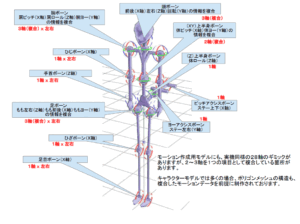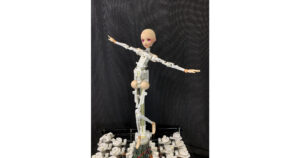一般的に、人を助けるロボットというと、物理的に人を助けるものだけを思い浮かべますが、それだけでしょうか?身振り手振りで人とコミュニケーションをとり、情報を提供してくれる「AIコンシェルジュ」が欲しいと思いませんか?
例えば、高齢者介護の場合にどのようなロボットが役に立つかを考えてみましょう。
高齢者介護を人的資源で推進することが難しいのであれば、看護師などの専門家の力を借りずに、重病ではない未病レベルの人がもっと人生を楽しむことができるようにケアしてくれるシステムとはどのようなものでしょう?
それのヒントになるのは、ラジオはある年齢に達した人にとって最も楽しいメディアだと言うことです。年をとると、まず膝や腰が不自由になり、次に目が不自由になります。目は老眼、白内障、緑内障などでますます見えにくくなります。65歳を超えると、近くはもちろん、ある程度の距離のものも見えなくなり、ますます不自由になります。そのため、テレビやパソコンの小さな文字さえ見えにくくなり、スマートフォンは論外です。そのような状況でも、最後まで最もよく機能するのは耳です。私の母は、亡くなる直前まで耳ははっきりと聞こえていました。だから晩年はずっとラジオを聴いていました。テレビやパソコンと違って、聴こうと思えば聴けるし、聴きたくなければBGMのようになる、とても便利なメディアなのです。不思議なもので、テレビでのおしゃべりを聞くと気になるが、ラジオのおしゃべりはあまり気にならないようです。番組の作り方の違いでしょうか。
音のメディアとしてのラジオを考えるには、まずラジオの起源を考えなければならない。昔、遠方に音を伝えるには、電波で送るしかなかった。高い電波塔を建てて一斉に電波を飛ばし、それを聴きたい人がラジオ受信機を使って聴くという方法しかなかった。したがって、通信は一方通行で、放送局が発信するラジオ番組を誰もが聴くというものだった。それでも、好きな番組がたくさん聴けるように、いろいろな周波数にたくさんのラジオ局ができた。このようなシステムが作られたのは、主に当時の技術水準から必要だったからである。さて、「音のメディア」としてのラジオは、現在の技術ではどうあるべきか。
インターネット技術と携帯電話のインフラが整った今、私たちはどこにいても必要な情報を得ることができる。携帯電話ひとつで世界中どこにいてもテレビ電話がかけられるなんて夢のようだ。ご存知のように、インターネットラジオやポッドキャストなど、インターネット上のサウンドメディアはすでに登場している。しかし、それらは本当に理想的な「音メディアとしてのラジオ」なのだろうか?
現在の技術水準を踏まえれば、「音メディアとしてのラジオ」の概念も変わっていくだろう。最大の違いは「双方向性」の概念である。電波を使って放送していた時代には、双方向性を実現するのは非常に難しい技術だった。しかし、今やインターネットや携帯電話では双方向通信は当たり前。端末ユーザーが発信者にデータを送れるのは当たり前になった。にもかかわらず、インターネットラジオやポッドキャストでは、双方向機能はせいぜい選局程度にしか使われていない。
次に重要な機能はオンデマンドである。好きな時間に好きな番組を聴けるということだ。これはPodCastでは実現されているが、インターネットラジオでは実現されていない。音声メディアとしてのラジオは、まだまだ発展途上といっても過言ではない。
さて、「音メディアとしてのラジオ」をもっと楽しみたいとき、私たちはどんな機能を求めているのだろうか。番組を聴く」だけでなく、近年のAI技術の進歩により、「ChatGPT」のような知的会話を可能にする機能も進化している。こうした機能により、ラジオはスマートスピーカーのようにコマンドを認識するだけでなく、オーナーの曖昧なリクエストに応え、オーナーに適した番組を選択し、番組の再生時間などを設定できるようになる。オーナーのリクエストにスマートに応える 「音メディアとしてのラジオ 」が実現できる。
要するに、オーディオ番組を聴くだけでなく、オーナーの好みに合わせて番組を選び、聴く時間を調整し、ちょっとした会話までしてくれる「コンシェルジュ」機能付きラジオがあったら楽しいと思う。基本的には番組を流すのがラジオの機能だが、ちょっとした会話をしてくれたり、いろいろな提案や情報を教えてくれたりするコンシェルジュがいたら、もっと楽しいだろう。
さらに、コンシェルジュなのだから、やはりオーナーが話しかけやすい形がいい。例えばタブレット画面のキャラクターでもいいし、好きなキャラクターのロボットが音や会話に反応して動いてくれたらもっと楽しい。好きなキャラクターがしゃべったり、歌ったりする姿なら、もっとメディアが好きになるはずだ。もっと言えば、孫の形をしたキャラクターを作るといったアイデアも考えられる。自分の好きな外見のキャラクターが動くということは、「音のメディアとしてのラジオ」がより感情移入できるメディアになるということ。オーナーが感情移入し、より身近に感じられるようになれば、「AIコンシェルジュ」はより素晴らしいものになる。
現実の施設や家庭で、未病の方をどのようにケアしていくのか、そのためにはどのようなツールが必要なのか、未病の方が楽しく過ごすために「AIコンシェルジュ」で何ができるのかを考えていきたいと思います。AIコンシェルジュはまだ世の中に存在しないため、どのような機能があればいいのか明確なイメージがまだありません。必要な機能を定義し、私たちや皆さんの経験や解決策をもとに、様々な手段で実現していきたいと考えています。
Generally, when we think of robots that help people, we think only of something that physically helps them, but is that all? Wouldn’t you like an “AI concierge” that communicates with people by gestures and provides information?
For example, consider what kind of robot would be useful in the case of senior care.
If it is difficult to promote care for seniors with human resources, what kind of system would help unwell people to enjoy their lives more without the help of nurses and other professionals?
To my surprise, Radio is the most enjoyable media for people who have reached a certain age. As people get older, the first things to be crippled are their knees and hips, and then their eyes. The eyes become increasingly difficult to see due to presbyopia, cataracts, and glaucoma. People over the age of 65 are becoming more and more handicapped, as they cannot see objects up close or even at a certain distance. This makes it difficult to see TV or even small letters on a computer, and smartphones are out of the question. Even in this situation, it is the ear that functions the best until the end. My mother was able to hear clearly even just before she passed away. That is why she listened to the radio for most of her later years. Unlike TV or PC, radio is a medium that allows you to listen to whatever you want. It is a very convenient medium that you can listen to if you want to, and if you don’t want to, it becomes like background music. It is strange, but when I hear chatter on TV, it bothers me, but I don’t seem to mind radio chatter as much. Is it a difference in the way the programs are made? It seems that radio is once again becoming popular among young people who rarely watch TV anymore, and its appeal has been rekindled.
To think about radio as a sound medium, we must first consider the origins of radio. In the old days, the only way to transmit sound to distant places was to send it over the airwaves. The only way to do this was to build a high radio tower and send out radio waves all at once, and the people who wanted to listen to them would use radio receivers to listen. Therefore, communication was one-way, and everyone listened to the radio programs sent out by the broadcasters. Even so, many radio stations were established on various frequencies so that people could listen to their favorite programs as much as possible. Such a system was created mainly because it was necessary due to the level of technology at the time. Now, what should radio as a “sound media” be like with today’s technology?
Nowadays, with the Internet technology and cell phone infrastructure, we can get any information we need wherever we are. It is a dream come true to be able to make a TV call anywhere in the world with a single cell phone. As you probably know, sound media on the Internet, such as Internet radio and PodCast, have already appeared. But are they really the ideal “radio as sound media”?
Based on the current level of technology, the concept of “radio as a sound medium” is likely to change. The biggest difference is the concept of “bidirectionality”. In the days of broadcasting over the airwaves, bidirectionality was a very difficult technology to achieve. Nowadays, however, two-way communication is commonplace on the Internet and cell phones. It is now commonplace for a terminal user to be able to send data to the originator. Despite this, Internet radio and podcasts only use the interactive feature to select programs at best.
The next important feature is on-demand. It means that you can listen to your favorite programs at the time you want to hear them. This has been achieved with PodCast, but not with Internet radio. It would not be an exaggeration to say that radio as a sound medium is still in its early stages of development.
Now, when we want to enjoy “radio as a sound media” more, what kind of functions do we want? In addition to “listening to programs,” recent advances in AI technology have led to the evolution of functions that enable intelligent conversation, such as ChatGPT. With such functions, the radio not only recognizes commands like a smart speaker, but also responds to the owner’s ambiguous requests, selects the appropriate program for the owner, and allows the owner to set the program playback time, etc. The radio as a sound media” that can respond intelligently to the owner’s requests can be realized.
In short, it would be fun to have a radio with a “concierge” function that not only listens to audio programs, but also selects programs according to the owner’s preferences, adjusts the time to listen to them, and even engages in small conversations. I think it would be fun to have a radio with a “concierge” function. Basically, the function of a radio is to play programs, but it would be more enjoyable if it had a concierge who can have a small conversation with you and give you various suggestions and information.
Furthermore, since it is a concierge, it should still be in a form that is easy for the owner to talk to. It could be a character on a tablet screen, for example, or it would be more fun to have a robot of your favorite character that moves in response to sounds and conversations. You would like the media more if your favorite character talked and sang in appearance. More to the point, I can also imagine ideas such as making the character in the shape of your grandchildren. Having a character with the appearance of your choice move means that “radio as a sound medium” will become a medium that you will be more emotionally involved in. If the owner becomes emotionally involved and feels more familiar, the “AI concierge” will become a more wonderful “AI concierge for pre-symptomatic care”.
We would like to think about how we can take care of people with unwellness in real facilities and homes, what kind of tools are needed for this purpose, and what we can do with the “AI concierge” to help people with unwellness enjoy their time with us. We do not have a clear idea of what kind of functions we would like to see in the AI concierge, since it does not yet exist in the world. We would like to define the necessary functions and realize them through variety of means, based on our and your experiences and solutions.






コメント
コメント一覧 (7件)
This brought up some points I hadn’t considered, thanks for sharing.
Real informative and superb body structure of content, now that’s user friendly (:.
I always was interested in this topic and stock still am, thanks for putting up.
I like what you guys are up also. Such smart work and reporting! Keep up the excellent works guys I have incorporated you guys to my blogroll. I think it will improve the value of my website 🙂
探すの難しい、カラフルで活気ある文章。最高!。 [url=https://iqvel.com/ja/a/%E3%82%A4%E3%82%BF%E3%83%AA%E3%82%A2/%E3%83%90%E3%83%AB%E3%83%87%E3%82%A3%E3%83%BC%E3%83%8B%E7%BE%8E%E8%A1%93%E9%A4%A8]彫刻と工芸[/url] 引き続きフォロー — 刺激満点。
内容すごい!。感謝!で 温かさもらえます。 [url=https://iqvel.com/ja/a/%E3%82%B1%E3%83%8B%E3%82%A2/%E3%83%8A%E3%82%A4%E3%83%AD%E3%83%93%E5%9B%BD%E7%AB%8B%E5%85%AC%E5%9C%92]サバンナと高層ビル[/url] ロジまとめ便利 — 満足度高い。
I see something genuinely special in this web site.